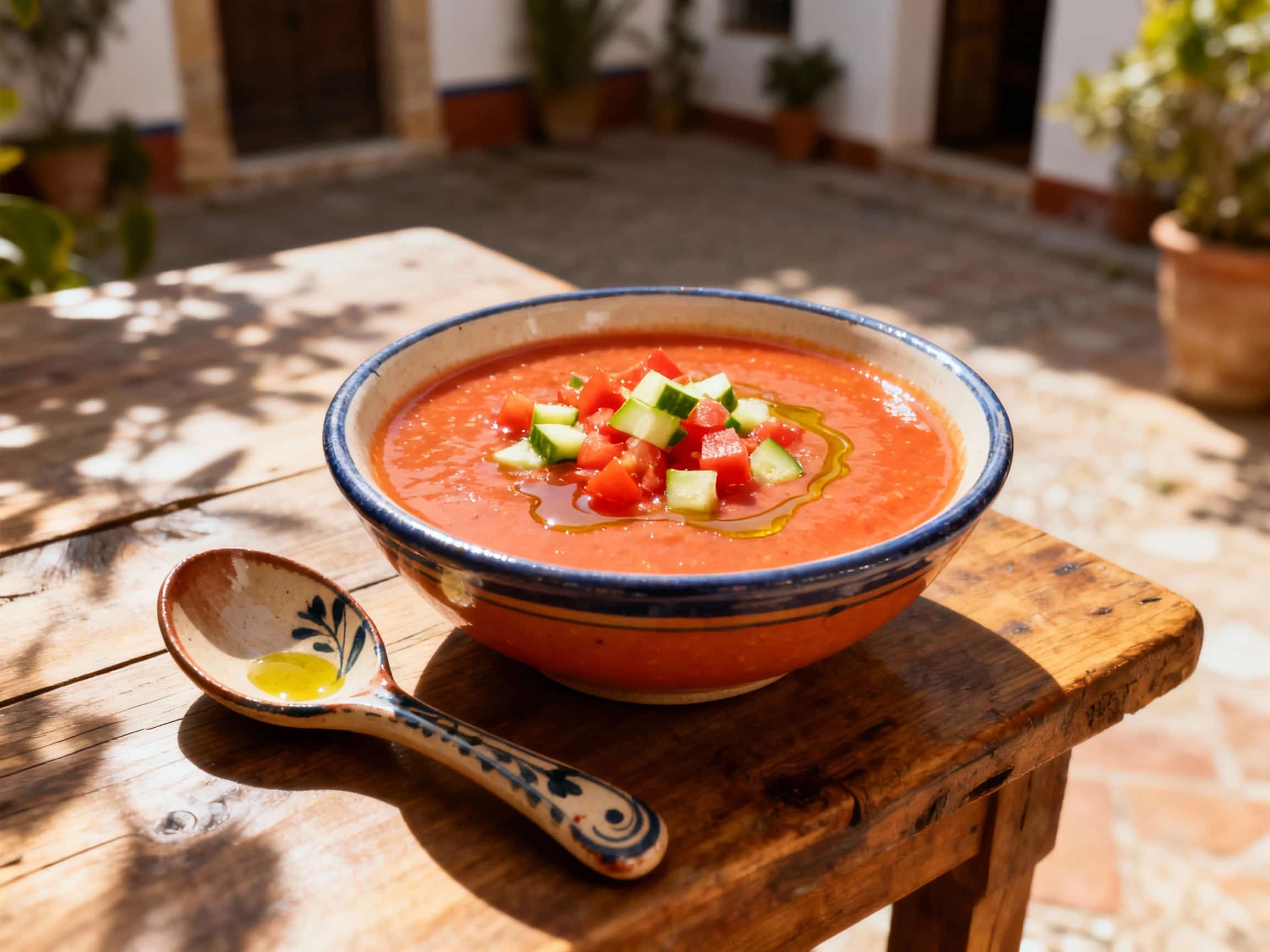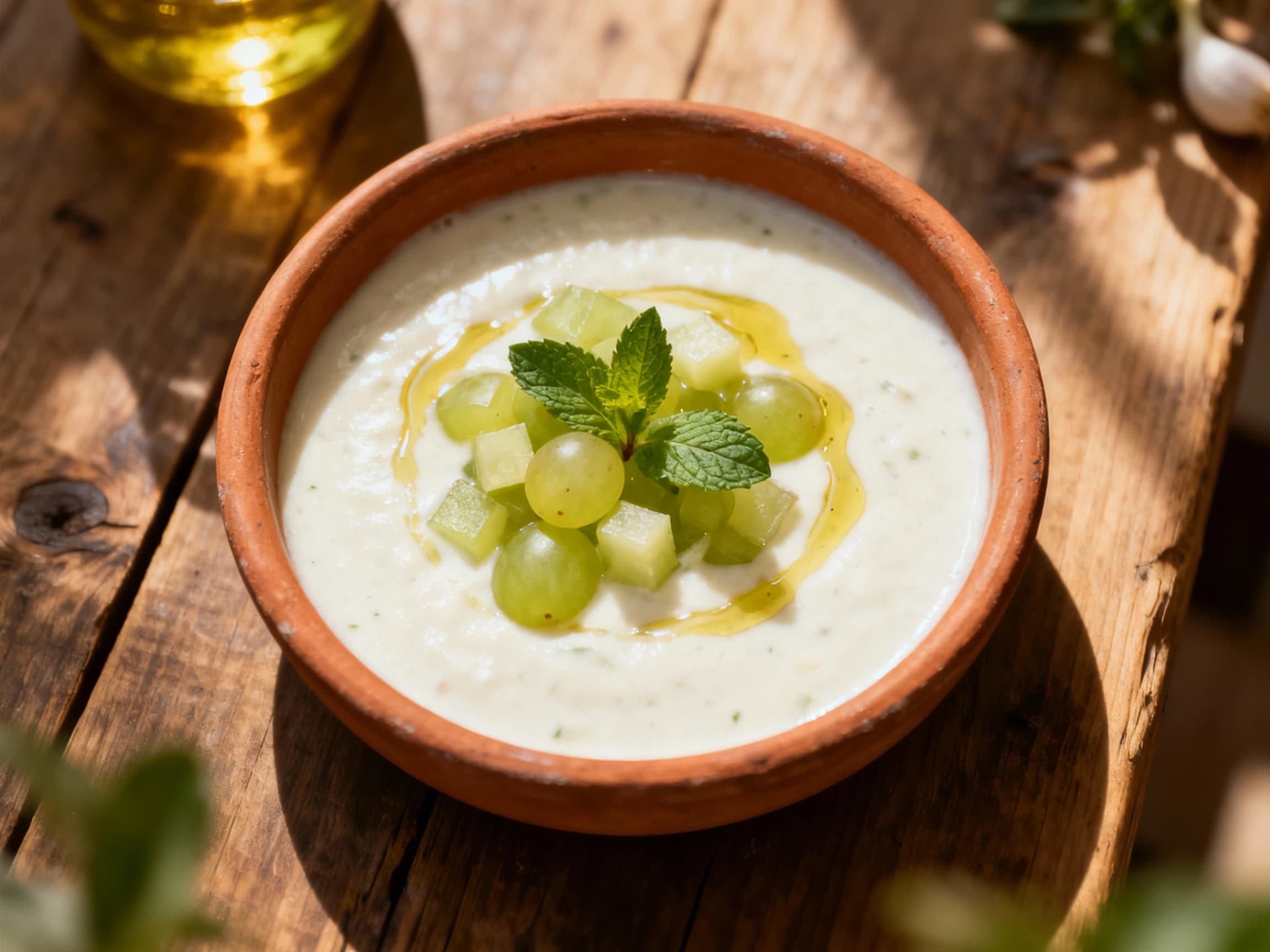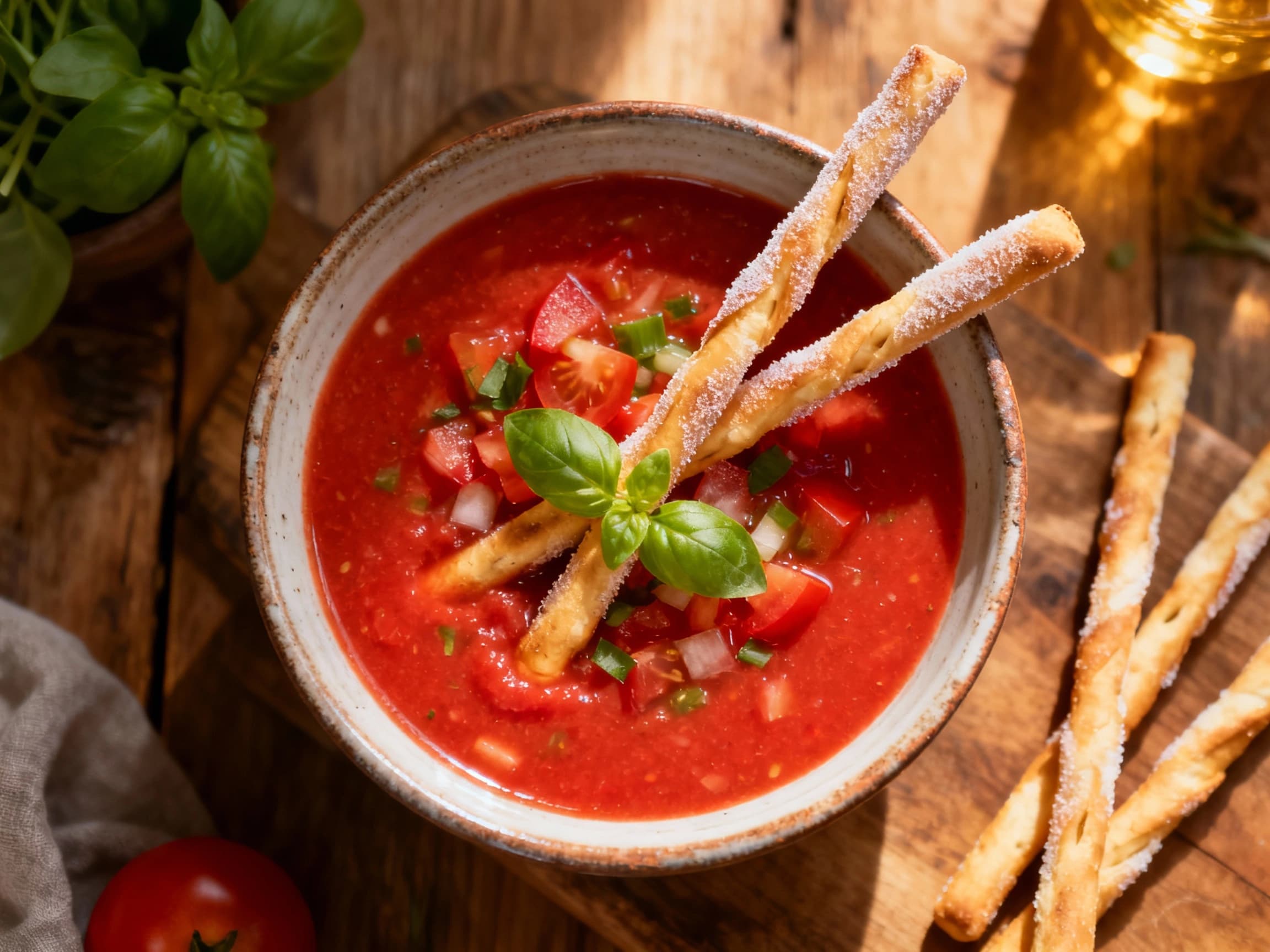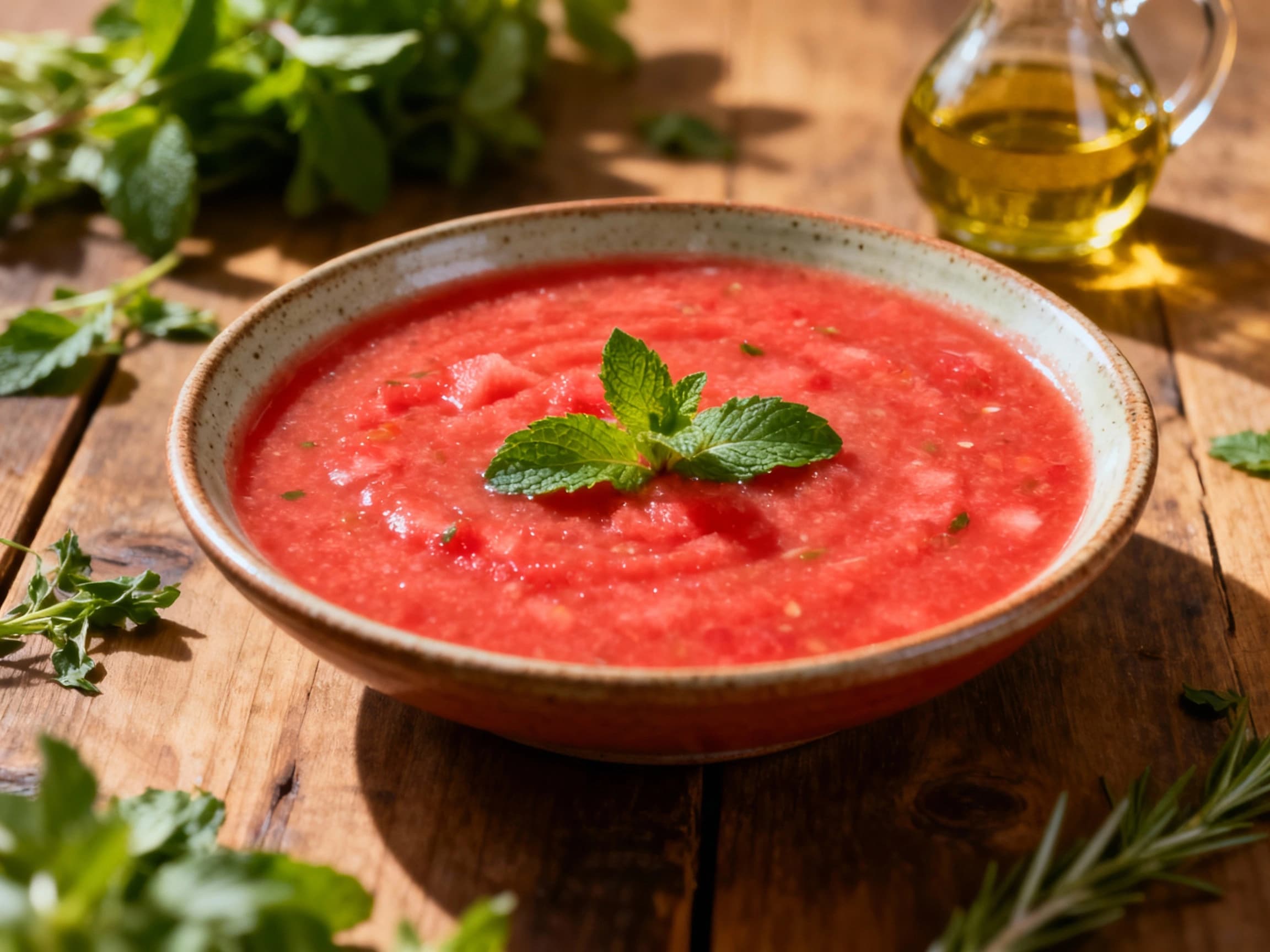
Gazpacho
Gazpacho
- Country
- Spain
- Region
- Andalusia
- Recipes
- 3 Recipes
Origins & Characteristics of Gazpacho
Gazpacho, a beloved Spanish cold soup, boasts a rich history originating from the southern region of Andalusia. Its humble beginnings can be traced back to the Moorish invasion of the Iberian Peninsula in the 8th century, where settlers introduced ingredients like almonds and garlic, forming the base of early cold soups. Over centuries, as tomatoes and peppers were introduced from the Americas in the 16th century, gazpacho evolved into the vibrant and refreshing dish known today. The soup's refreshing qualities made it an ideal sustenance for agricultural workers and travelers enduring the intense Andalusian summers. Gastón Acurio, a renowned Peruvian chef, has recognized gazpacho as one of the world's most influential dishes, highlighting its global appeal and adaptability. Historically, it has also been a symbol of resourcefulness, transforming simple, raw vegetables into a flavorful and nourishing meal. Notable places associated with its fame include Seville and Granada, cities where the nuances of its preparation are deeply ingrained in local culinary traditions. The modern iteration often includes bread, olive oil, vinegar, garlic, and a variety of finely chopped or pureed vegetables, creating a harmonious blend of flavors and textures. Its status as a culinary icon is solidified by its presence on tables worldwide, a testament to its enduring appeal and its role as a cooling antidote to hot weather.
History of Gazpacho
Moorish influence introduces ingredients and early cold soup concepts.
Tomatoes and peppers from the Americas are incorporated, significantly shaping the modern gazpacho.
Gazpacho becomes a staple for agricultural workers in Andalusia.
Gastón Acurio highlights gazpacho as an influential global dish.
Gazpacho gains international recognition and is adapted in various culinary styles worldwide.


